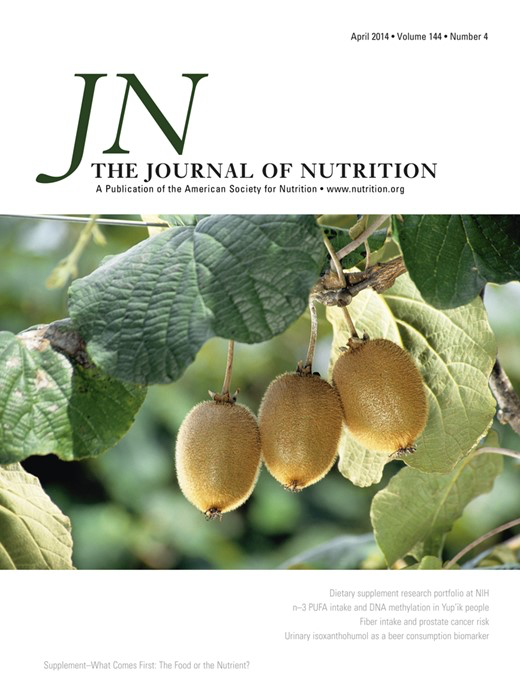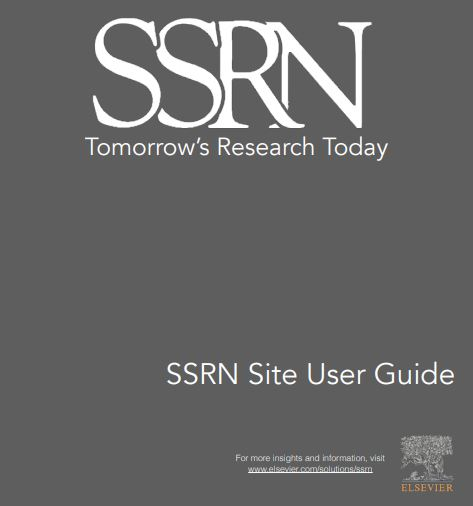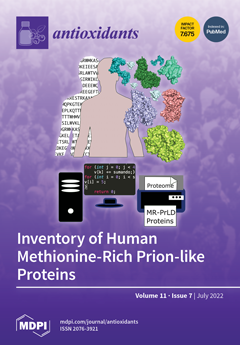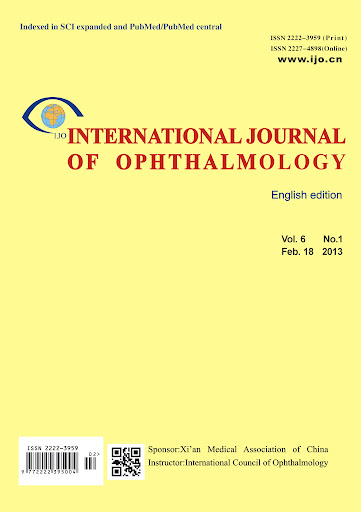Age-Related Macular Degeneration
How to submit an article:
- Registered users can submit any published journal article that has a unique DOI (Digital Object Identifier) name or link to Research Hub.
- For example, you can paste the full DOI link:
https://doi.org/10.1109/5.771073or just the DOI name:10.1109/5.771073into the field above and click submit. - The person who is first to submit a valid article to Research Hub will forever be credited for it, and every article submission earns you +6 Research Points.
Also known as: ARMD, Macular Degeneration
Published research studies are articles that present the findings of original research that has undergone a peer-review process and has been made publicly available in scholarly journals, books or other media.

Intake of Blueberries, Anthocyanins, and Risk of Eye Disease in Women
2024 Apr The Journal of Nutrition Sesso HD, Rautiainen S, Park SJ, Kim E, Lee IM, Glynn RJ, et al.
Cohort Study Clinical Study Eye Health Age-Related Macular Degeneration Anthocyanins BlueberryGreater intake of blueberries considerably decreases the risk of age-related macular degeneration, while a remarkable dietary intake of anthocyanins inversely correlates with cataract incidents.

Effects of acupuncture on age-related macular degeneration: A systematic review and meta-analysis of randomized controlled trials
2023 Mar 23 PLOS One Sun W, Zhao Y, Liao L, Wang X, Wei Q, Chao G, et al.
Meta-Analysis Systematic Review Age-Related Macular Degeneration AcupunctureAcupuncture, either alone or as an adjunct, improved the clinical efficacy and visual acuity of age-related macular degeneration patients, particularly those with dry AMD.

The effect of a chrysanthemum water extract in protecting the retina of mice from light damage
2022 Aug 26 BMC Complementary Medicine and Therapies Gong Y, Wang X, Wang Y, Hao P, Wang H, Guo Y, et al.
Experimental Study Animal Study Chrysanthemum Age-Related Macular DegenerationChrysanthemum extract has protective effects on light-damaged retinas, reducing oxidative stress and improving cellular viability.

Lutein and Zeaxanthin and Their Roles in Age-Related Macular Degeneration—Neurodegenerative Disease
2022 Feb 16 Nutrients Mrowicka M, Mrowicki J, Kucharska E, Majsterek I
Lutein and zeaxanthin, obtained from sources like dark leafy vegetables and fruits, play a crucial role in defending against oxidative stress and scavenging free radicals. These carotenoids, concentrated in the macula of the retina, are essential for eye health. Specific binding proteins, StARD3 for lutein and GSTP1 for zeaxanthin, facilitate their accumulation in the retina. Supportive therapy with lutein and zeaxanthin has been shown to delay the progression of eye diseases, such as age-related macular degeneration (AMD) and cataracts. The article provides insights into the metabolism and bioavailability of these carotenoids, emphasizing the importance of consuming xanthophyll-rich foods.
Review Article Age-Related Macular Degeneration Zeaxanthin
Goji Berry Intake Increases Macular Pigment Optical Density in Healthy Adults: A Randomized Pilot Trial
2021 Dec 09 Nutrients Li X, Holt RR, Keen CL, Morse LS, Yiu G, Hackman RM
Randomised Controlled Trial Age-Related Macular Degeneration Goji BerryRegular intake of goji berries can increase Macular Pigment Optical Density, potentially helping to prevent or delay the development of age-related macular degeneration.
Research insights are moderated by the Research Hub team and offer an at-a-glance overview of interesting research findings.

2024 The Journal of Nutrition
Greater intake of blueberries considerably decreases the risk of age-related macular degeneration, while a remarkable dietary intake of anthocyanins inversely correlates with cataract incidents.
Cohort Study Anthocyanins Blueberry Eye Health
Intake of Blueberries, Anthocyanins, and Risk of Eye Disease in Women
Sesso HD, Rautiainen S, Park SJ, Kim E, Lee IM, Glynn RJ, et al.

2023 PLOS One
Acupuncture, either alone or as an adjunct, improved the clinical efficacy and visual acuity of age-related macular degeneration patients, particularly those with dry AMD.
Meta-Analysis Acupuncture
Effects of acupuncture on age-related macular degeneration: A systematic review and meta-analysis of randomized controlled trials
Sun W, Zhao Y, Liao L, Wang X, Wei Q, Chao G, et al.

2022 BMC Complementary Medicine and Therapies
Chrysanthemum extract has protective effects on light-damaged retinas, reducing oxidative stress and improving cellular viability.
Experimental Study Chrysanthemum
The effect of a chrysanthemum water extract in protecting the retina of mice from light damage
Gong Y, Wang X, Wang Y, Hao P, Wang H, Guo Y, et al.

2021 Nutrients
Regular intake of goji berries can increase Macular Pigment Optical Density, potentially helping to prevent or delay the development of age-related macular degeneration.
Randomised Controlled Trial Goji Berry
Goji Berry Intake Increases Macular Pigment Optical Density in Healthy Adults: A Randomized Pilot Trial
Li X, Holt RR, Keen CL, Morse LS, Yiu G, Hackman RM

2021 SSRN Electronic Journal
Phytochemicals in carrots, particularly carotenoids, are effective at reducing eyesight degeneration and treating chronic eye defects due to their antioxidant and anti-inflammatory properties.
Review Article Carrot Cataracts Glaucoma Nearsightedness
The Nutraceutical potential of Carrots carotenoids in Chronic Eyes Defects (CEDs): A Review
Taiwo EA, Abdulkareem TT, Fajemisin E
Review Articles
Review articles summarise and critically evaluate the current state of research on a specific topic or field by synthesising multiple primary research studies.

Effects of acupuncture on age-related macular degeneration: A systematic review and meta-analysis of randomized controlled trials
2023 Mar 23 PLOS One Sun W, Zhao Y, Liao L, Wang X, Wei Q, Chao G, et al.
Meta-Analysis Systematic Review Age-Related Macular Degeneration AcupunctureAcupuncture, either alone or as an adjunct, improved the clinical efficacy and visual acuity of age-related macular degeneration patients, particularly those with dry AMD.

Lutein and Zeaxanthin and Their Roles in Age-Related Macular Degeneration—Neurodegenerative Disease
2022 Feb 16 Nutrients Mrowicka M, Mrowicki J, Kucharska E, Majsterek I
Lutein and zeaxanthin, obtained from sources like dark leafy vegetables and fruits, play a crucial role in defending against oxidative stress and scavenging free radicals. These carotenoids, concentrated in the macula of the retina, are essential for eye health. Specific binding proteins, StARD3 for lutein and GSTP1 for zeaxanthin, facilitate their accumulation in the retina. Supportive therapy with lutein and zeaxanthin has been shown to delay the progression of eye diseases, such as age-related macular degeneration (AMD) and cataracts. The article provides insights into the metabolism and bioavailability of these carotenoids, emphasizing the importance of consuming xanthophyll-rich foods.
Review Article Age-Related Macular Degeneration Zeaxanthin
The Nutraceutical potential of Carrots carotenoids in Chronic Eyes Defects (CEDs): A Review
2021 Jan SSRN Electronic Journal Taiwo EA, Abdulkareem TT, Fajemisin E
Review Article Nearsightedness Cataracts Age-Related Macular Degeneration Glaucoma CarrotPhytochemicals in carrots, particularly carotenoids, are effective at reducing eyesight degeneration and treating chronic eye defects due to their antioxidant and anti-inflammatory properties.

Nutrients for Prevention of Macular Degeneration and Eye-Related Diseases
2019 Apr 02 Antioxidants Khoo H, Ng H, Yap WS, Goh H, Yim H
Various antioxidants, including anthocyanins, carotenoids, flavonoids, and vitamins, have shown efficacy in reducing the risk of eye-related diseases. Anthocyanins from berries, β-carotene, lutein, zeaxanthin, and flavonoids from plants exhibit anti-inflammatory mechanisms. Combinations of these antioxidants, vitamins, and minerals have a synergistic effect in preventing or reducing the risk of macular degeneration. Clinically proven dietary supplements and nutraceutical formulas are available, but understanding the right dosage, efficacy, and bioavailability is crucial for consumers. The review also addresses potential causal factors, treatments, and controversies in using antioxidants for macular degeneration prevention, emphasizing the need for future multiethnic and multicenter trials.
Review Article Eye Health Age-Related Macular Degeneration Eye Diseases Lutein ZeaxanthinClinical Trials
Clinical trials are research studies that involve people and are conducted to evaluate the safety and efficacy of new treatments or interventions, such as drugs, medical devices, or behavioural therapies.

Goji Berry Intake Increases Macular Pigment Optical Density in Healthy Adults: A Randomized Pilot Trial
2021 Dec 09 Nutrients Li X, Holt RR, Keen CL, Morse LS, Yiu G, Hackman RM
Randomised Controlled Trial Age-Related Macular Degeneration Goji BerryRegular intake of goji berries can increase Macular Pigment Optical Density, potentially helping to prevent or delay the development of age-related macular degeneration.

Macular pigment and serum zeaxanthin levels with Goji berry supplement in early age-related macular degeneration
2018 Jun 18 International Journal of Ophthalmology Shang Li, Na Liu, Li Lin, et al.
Randomised Controlled Trial Age-Related Macular Degeneration ZeaxanthinGoji berry supplementation can improve macular pigment and visual acuity in patients with early age-related macular degeneration by increasing serum zeaxanthin levels.
Study Protocols
Published study protocols are detailed plans that outline the objectives, methodology, statistical analyses, and organisation of a research study that have been made publicly available for others to review and use as a reference.
Presentation Slides

Cohort Study
Greater intake of blueberries considerably decreases the risk of age-related macular degeneration, while a remarkable dietary intake of anthocyanins inversely correlates with cataract incidents.
Sesso HD, Rautiainen S, Park SJ, Kim E, Lee IM, Glynn RJ, Buring JE, Christen WG

Meta-Analysis
Acupuncture, either alone or as an adjunct, improved the clinical efficacy and visual acuity of age-related macular degeneration patients, particularly those with dry AMD.
Sun W, Zhao Y, Liao L, Wang X, Wei Q, Chao G, Zhou J

Experimental Study
Chrysanthemum extract has protective effects on light-damaged retinas, reducing oxidative stress and improving cellular viability.
Gong Y, Wang X, Wang Y, Hao P, Wang H, Guo Y, Zhang W

Randomised Controlled Trial
Regular intake of goji berries can increase Macular Pigment Optical Density, potentially helping to prevent or delay the development of age-related macular degeneration.
Li X, Holt RR, Keen CL, Morse LS, Yiu G, Hackman RM

Review Article
Phytochemicals in carrots, particularly carotenoids, are effective at reducing eyesight degeneration and treating chronic eye defects due to their antioxidant and anti-inflammatory properties.
Taiwo EA, Abdulkareem TT, Fajemisin E

Randomised Controlled Trial
Goji berry supplementation can improve macular pigment and visual acuity in patients with early age-related macular degeneration by increasing serum zeaxanthin levels.
Shang Li, Na Liu, Li Lin, et al.
Executive Summary
Write an executive summary in the form of a blog article on the topic of "Research into Chinese medicine treatment for Age-Related Macular Degeneration" summarising the research below and using language that can be easily understood by patients and avoiding medical jargon using a professional and caring tone of voice.
Write an executive summary in the form of a blog article on the topic of "Researched Chinese medicine treatments for Age-Related Macular Degeneration" summarising the research below in an objective and easy to understand way, and using language that can be easily understood by patients. Group the article into Chinese medicine treatments first, followed by nutrition and other treatments. Avoid using medical jargon and use a professional and caring tone of voice.
Write me a concise but easy to understand executive summary on the topic of "Chinese medicine treatments for Age-Related Macular Degeneration" based on the following research that I will give you. Your summary should be 2 paragraphs long in Australian English spelling and include references to the studies.
A Cohort Study published in 2024 in the journal The Journal of Nutrition found that Greater intake of blueberries considerably decreases the risk of age-related macular degeneration, while a remarkable dietary intake of anthocyanins inversely correlates with cataract incidents. Middle-aged and older women, numbering 36,653 and 35,402 originally without cataract and AMD, provided data for the study via semiquantitative food frequency questionnaires. Insights were derived on the consumption of blueberries by these women, with frequency varied from none to over two servings weekly. Additionally, total anthocyanin consumption was analysed, with major subclasses adjusted for energy and then into quintiles. Self-reported risk factors for eye diseases were adjusted in the multivariable hazard ratios. On analysis, it was found that a significant portion of participants consumed a minimum of one serving of blueberries weekly. Thus, compared to no blueberry intake, it was observed that those consuming the fruit exhibited a decrease in the total instances of AMD, while visually significant AMD remained unaffected. Furthermore, dietary anthocyanin showed a modest yet significant inverse association with cataract occurrences, but no notable correlation with AMD.
A Meta-Analysis published in 2023 in the journal PLOS One found that Acupuncture, either alone or as an adjunct, improved the clinical efficacy and visual acuity of age-related macular degeneration patients, particularly those with dry AMD. The study conducted a meta-analysis on nine out of 226 articles selected from various databases such as PubMed, Ovid Medline, Embase, Cochrane Library, The Chinese National Knowledge Infrastructure Database, VIP, Wanfang, and SINOMED up until September 4, 2022. Two separate reviewers independently carried out the literature screening and data extraction and used RevMan 5.4 software for the meta-analysis. In the discussion of the results, it was found that 508 AMD patients (representing a total of 631 eyes), including 360 dry eyes and 271 wet eyes, showed improvement in both clinical efficacy and best-corrected visual acuity after receiving acupuncture treatment. The treatment also led to a reduction in their central macular thickness. However, while the benefits of acupuncture were seen, the quality of evidence supporting these outcomes was judged as ranging from "low" to "very low".
A Experimental Study published in 2022 in the journal BMC Complementary Medicine and Therapies found that Chrysanthemum extract has protective effects on light-damaged retinas, reducing oxidative stress and improving cellular viability. The experiment incorporated both in-vitro and in-vivo tests. In the lab, ARPE-19 cells were divided into four groups (control, light-damaged, low-dose extract, high-dose extract), treated with varying levels of chrysanthemum extract, and then exposed to light. Cellular viability and reactive oxygen species production were then observed. A similar grouping approach was used with C57BL/6J mice, where chrysanthemum extract concentration was administered before light exposure. The retinas were evaluated for function, morphology, and apoptosis post-exposure. Light-damage caused a decrease in cellular viability and an increase in reactive oxygen species production. However, treatment with chrysanthemum extract showed improvement in viability and reduction in reactive oxygen species. In mice, light damage caused dysfunction in the retinas, destruction of morphology and increased apoptosis, particularly in the retinal pigment epithelium and photoreceptor layer. Again, chrysanthemum extract treatment improved retinal function, maintained retinal structures, and reduced apoptosis. The extract achieved this by increasing concentration of anti-oxidative enzymes.
A Randomised Controlled Trial published in 2021 in the journal Nutrients found that Regular intake of goji berries can increase Macular Pigment Optical Density, potentially helping to prevent or delay the development of age-related macular degeneration. The research was a randomized, parallel-arm study involving 27 participants aged between 45 and 65. These participants were divided into two groups; one group consumed 28 grams of goji berries five times weekly for 90 days, while the other consumed a supplement containing 6mg of lutein and 4mg of zeaxanthin in the same frequency and duration. This method intended to evaluate the effects of zeaxanthin-rich goji berry intake on Macular Pigment Optical Density and skin carotenoids, both key in AMD risk assessment, while also drawing a comparison to the effects of lutein and zeaxanthin supplements. As the study progressed to its end, the group consuming goji berries showed a significant increase in Macular Pigment Optical Density and skin carotenoids, key biomarkers in assessing the risk of developing age-related macular degeneration. The lutein and zeaxanthin supplement group, however, did not present any noteworthy changes. This suggests the potential superiority of goji berries in the prevention or delay of AMD development compared to the given supplement.
A Review Article published in 2021 in the journal SSRN Electronic Journal found that Phytochemicals in carrots, particularly carotenoids, are effective at reducing eyesight degeneration and treating chronic eye defects due to their antioxidant and anti-inflammatory properties. Throughout the review process, seventy original research and review articles were examined, all published between 2000 and 2020 across four major journal databases: Elsevier, PubMed, ResearchGate and Plos One. The focus of the search was directed by six keywords, centring on both in-vivo and in-vitro study results related to the topic of interest. Among the various findings, it was consistently revealed that carrots contain a multitude of bioactive compounds, notably carotenoids, which have been proven to be effective in halting and treating eye degenerations including Nyctalopia, Myopia, Cataracts, Age-related Macular Diseases and Glaucoma. Carotenoids have been found to work as potent antioxidants and anti-inflammatory agents, defending eyes against vision loss due to oxidative stress. Thus, the increased consumption of carrots can potentially serve as a natural therapeutic approach and enhancer of vision.
A Randomised Controlled Trial published in 2018 in the journal International Journal of Ophthalmology found that Goji berry supplementation can improve macular pigment and visual acuity in patients with early age-related macular degeneration by increasing serum zeaxanthin levels. In this prospective, randomized controlled study, 114 patients, aged 51 to 92 and with early age-related macular degeneration, were divided into two groups. One group was given a daily supplementation of 25 grams of Goji berries for 90 days while the control group continued with their normal diet. The study used Heterochromatic Flicker Photometry to measure the Macular Pigment Optical Density (MPOD) and High-Performance Liquid Chromatography to analyze the levels of serum lutein and zeaxanthin. These were recorded at the beginning and at the end of the study. In the Goji berry group, by the end of the study, there was no significant change in serum lutein levels. However, there was an increase in serum zeaxanthin levels which coincided with the group's improvement in MPOD. In comparison to the control group, the Goji group had higher zeaxanthin levels and MPOD. The visual acuity of the Goji berry group also showed a relative decrease compared to the baseline. These results suggest Goji berry supplementation can beneficially impact early age-related macular degeneration patients by boosting serum zeaxanthin levels, thus raising MPOD and improving visual acuity.
Moderation Tools
Topic
Sign In
Users not signed in are limited to viewing the 5 most recent items of content.